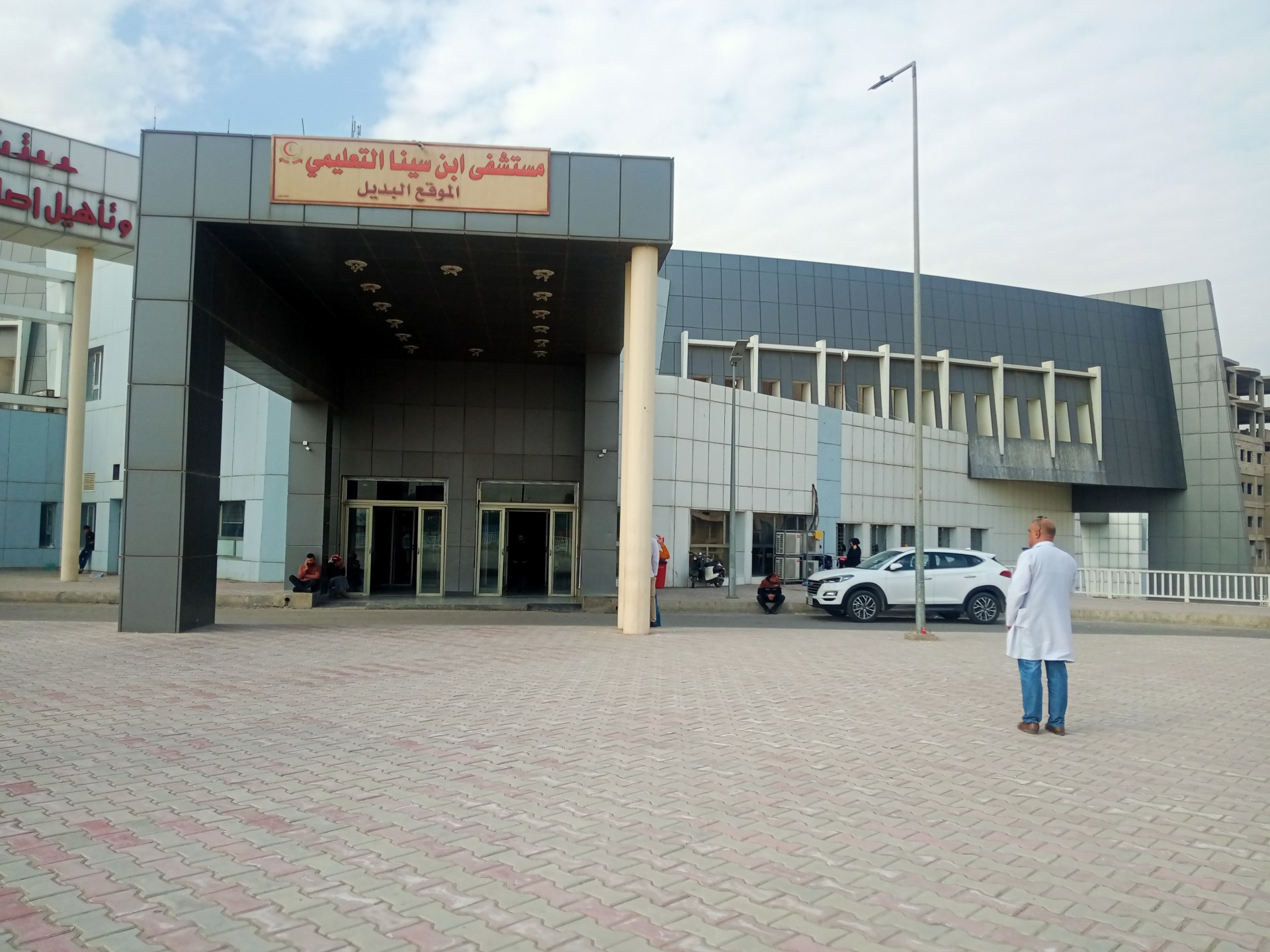The child Zakariya Shamel (4 years old) entered Ibn Sina Hospital in the city of Mosul, the center of Nineveh Governorate, in northern Iraq, to be treated, and he was discharged with AIDS.
The child had fallen from a height, and he began to be treated in the neurological department at Ibn Sina Teaching Hospital, and he was provided with the blood he needed. Less than 4 months after he was discharged from the hospital, he showed symptoms of immunodeficiency disease.
And when laboratory tests were conducted for him, it was found that he was a carrier of the human immunodeficiency virus, which shocked his family, and to search for how this virus reached this child, since this disease affects adults because one of its most important causes is unprotected sexual relations. I conducted examinations for all members of his family and the result was negative, and that they do not carry this virus, and then the search continued for the reasons for the virus reaching this innocent child.
Dr. Wijdan Mahdi: The results of the examination do not show antibodies during the retinal period (Al-Jazeera)
reticular period
During the investigation, it was found that the blood that was transfused to the child carried the virus, and that the donor did not know that he was infected, although blood donors are subject to examination, and patients who are treated and need surgeries are examined, but there is a window period, which is the time period from the entry of the disease into the human body until it is detected in the laboratory (the incubation period), which ranges from 3-6 months.
The result of the examination does not show antibodies during this period, according to what was indicated by the head of the Immunodeficiency Unit at Public Health in Nineveh, Dr. Wijdan Mahdi.
Dr. Wejdan added that the infected people sign pledges not to transmit the infection to others by not using shaving tools and toothbrushes and not even going to any dental clinic.
She emphasized that there is a private clinic in the AIDS treatment center in Shifa Hospital, and that most of these infections are the result of unprotected sexual relations, and there are also special instructions on this subject given to the infected person who is married in the presence of his partner to avoid transmission of the virus.
Doctor Fayez Al-Hamdani: The person who donated blood was a carrier of the virus, but he was not aware of that (Al-Jazeera)
Investigations into the incident
In turn, the director of Ibn Sina Hospital in Mosul, Doctor Fayez Ibrahim Al-Hamdani, states that the person who donated blood was a carrier of the virus, but he was not aware of that, and it was transferred to him through hair transplantation outside Iraq.
Al-Hamdani indicated that the sensitivity of the diagnosis detects 65-70% of the virus, and 30% does not appear during the examination that precedes the blood transfusion.
He confirmed that the child Zakaria Shamel entered the neurosurgery department in the hospital, to be treated after he fell from a height, and his condition required a blood transfusion and improved after he was treated, but we were surprised after 3 months that there was an investigation regarding the child's infection with AIDS.
An investigation was conducted in the Health Department in Nineveh Governorate and in the Inspection Department of the Ministry of Health and another judicial investigation. The results of the investigations proved that the medical staff did not fail, in the words of the director of the Ibn Sina Teaching Hospital in Mosul, a hospital that was established in 1974 and receives nearly 3,000 patients daily.
The child was deprived of playing with his peers, and doctors in Mosul refused to treat him or approach him (Al-Jazeera)
claim for compensation
The child became deprived of playing with his peers and relatives, and became prohibited from everything until the doctors in Mosul refused to treat him or approach him, and the parents of the child Zakaria Shamil were fed up with demands for compensation as they watched their son suffer a slow death.
Shamil Ahmed, the father of the child, declined to mention any details about the incident, stressing that he had not received any compensation from the government despite submitting a complaint to the Iraqi Ministry of Health, and the child became a victim of the delay in virus detection.
Muhammad Assi Jassim: After the accident, the Nineveh Health Department provided a faster examination in showing results (Al-Jazeera)
The government has an opinion on the incident
In turn, the Iraqi government represented by the Ministry of Public Health justified the situation, and stated that it has monitoring channels to detect viruses and includes all blood donors, examining those who are about to get married, as well as examining patients undergoing surgeries.
The Ministry refused to disclose the number of people infected in Nineveh, but indicated that the majority of them are adult males, and that the causes of their infection are due to unprotected sexual relations, and this was indicated by the doctor who specializes in community medicine at the Ministry of Public Health, Muhammad Asi Jassem.
After this incident, in which the child, Zakaria Shamel, was killed as a result of the delay in detecting the virus, the Nineveh Health Department provided the “Combo Test”, which is faster in showing results if the person is a carrier of the virus, so that it appears in the first weeks of the examination, according to what Jassim mentioned. He called on citizens to reduce blood transfusions unless absolutely necessary, but there are cases that require monthly blood transfusions, such as hemophilia patients.

